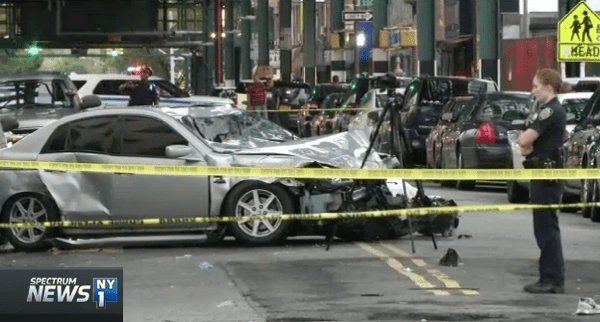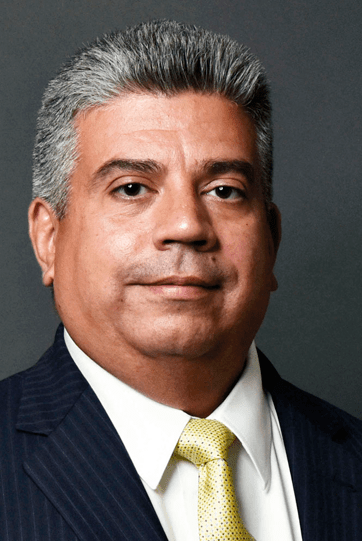As the district attorney of Brooklyn, my number one priority is ensuring the safety of everyone in the borough. That very much includes pedestrians, cyclists and anyone else who uses our roadways and streets.
But cases involving vehicular violence present a set of legal challenges that other instances of violence do not. Current statutes, case law and our society’s car-centric attitude means that car crashes are still generally viewed as "accidents" and not as crimes.
We need to change that perception — and the law that enables it.
Distracted, aggressive and reckless drivers present a danger to those around them and, when they injure, maim or kill, they must be held accountable. My office is closely involved in investigations of all traffic-related fatalities and serious injuries in Brooklyn and has taken creative approaches to apply the current laws to these tragic incidents. We have charged motorists who killed pedestrians with reckless manslaughter for driving despite doctors’ orders not to do so or for failing to fix a mechanical problem that later caused a collision.
Yet in many other cases, our hands are tied: The evidence does not support any available charges under the law.
Much remains to be done on the legislative side to reflect the growing understanding that dangerous driving is a criminal behavior. It would take diligent work to navigate this complex area of law and to come up with new and improved statutes.
But there is one loophole in New York that is easy to correct and should be taken up without delay: Under current law, drunk drivers who strike someone have an incentive to flee the scene of the crash.
The reason is simple: The potential punishment for injuring or killing someone while driving drunk is much higher than that for leaving the scene. And the fix is as simple: Raise the penalty for leaving-the-scene offenses so they are in line with vehicular manslaughter and assault.
Hit-and-runs are especially heinous crimes. The driver leaves the victim for dead without summoning potentially life-saving assistance, while also seeking to escape accountability by illegally evading law enforcement.
Hit-and-runs also are especially challenging to investigate and prosecute. The law requires us not only to prove who was behind the wheel, but also to prove beyond a reasonable doubt that the driver knew or had a reason to know that he or she struck someone. These investigations often involve painstaking recovery and review of video footage, searches for witnesses, forensic analyses and much more. More often than I’d like, we come up empty-handed.
It is not entirely surprising, then, that arrests were made in fewer than 9 percent of the 5,699 hit-and-run crashes that resulted in an injury in the city last year.
We can't know how many of those fleeing drivers were intoxicated. But drunk drivers in that situation can hide out or wait a few hours, sober up, turn themselves in and face a lesser charge than the one they would have been charged with had they stayed at the scene.
This state of affairs is absurd.
Legislators in Albany have bandied about no less than seven bills to amend the leaving-the-scene law (VTL § 600) in recent years. Most would raise leaving the scene with an injury from a Class E felony to a Class D felony and leaving the scene with a fatality from a Class D felony to a Class C felony. That would put the penalties in line with those against drunk drivers who kill or injure others.
It is past time for legislators to pass such a commonsense amendment in the upcoming session, despite a general aversion nowadays to enhance criminal exposure.
I am not an advocate of greater punishment and have been focused on the opposite – lessening the footprint of the criminal-justice system. But vehicular violence is one area that requires better and stricter laws to complement other safety measures, such as improvements in street design, education and regulation.
Amending the leaving the scene statute is an easy and straightforward first step. It would close the glaring loophole that incentivizes drunk drivers to flee a crash.
More important, it would send a powerful message that we, as a society, demand more responsibility and accountability from dangerous drivers who harm others.
Eric Gonzalez is the Brooklyn district attorney.







